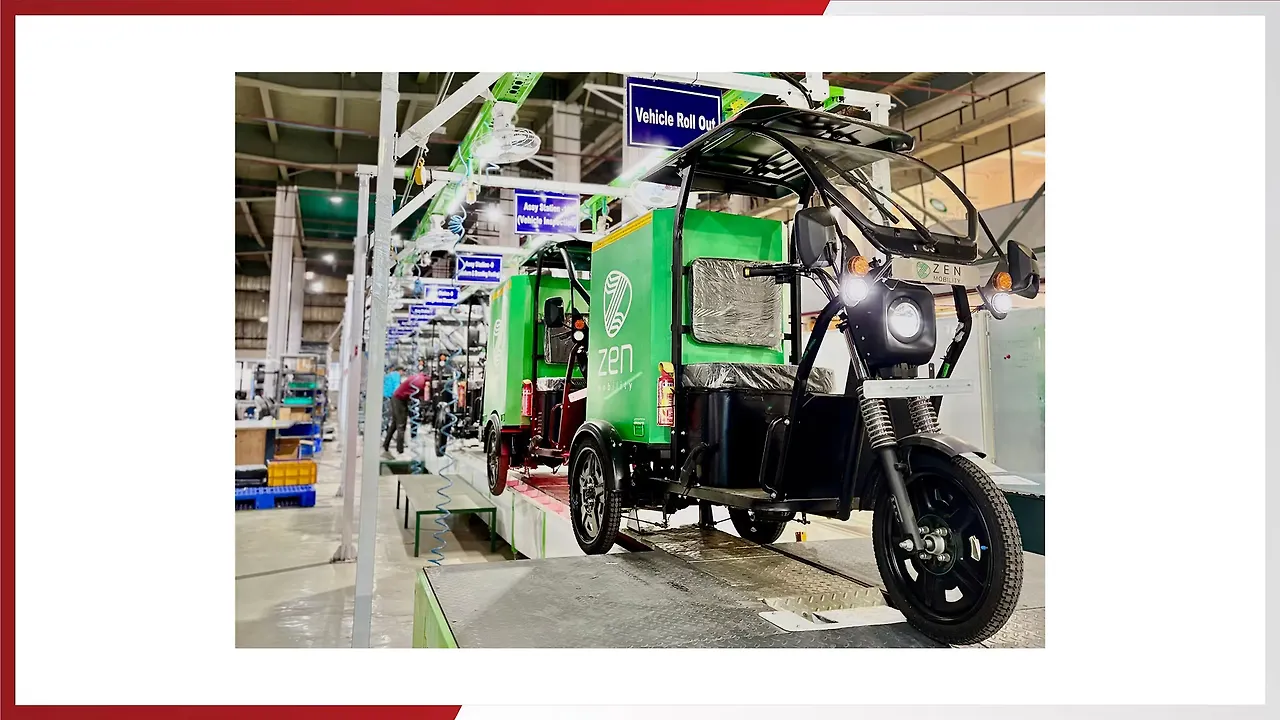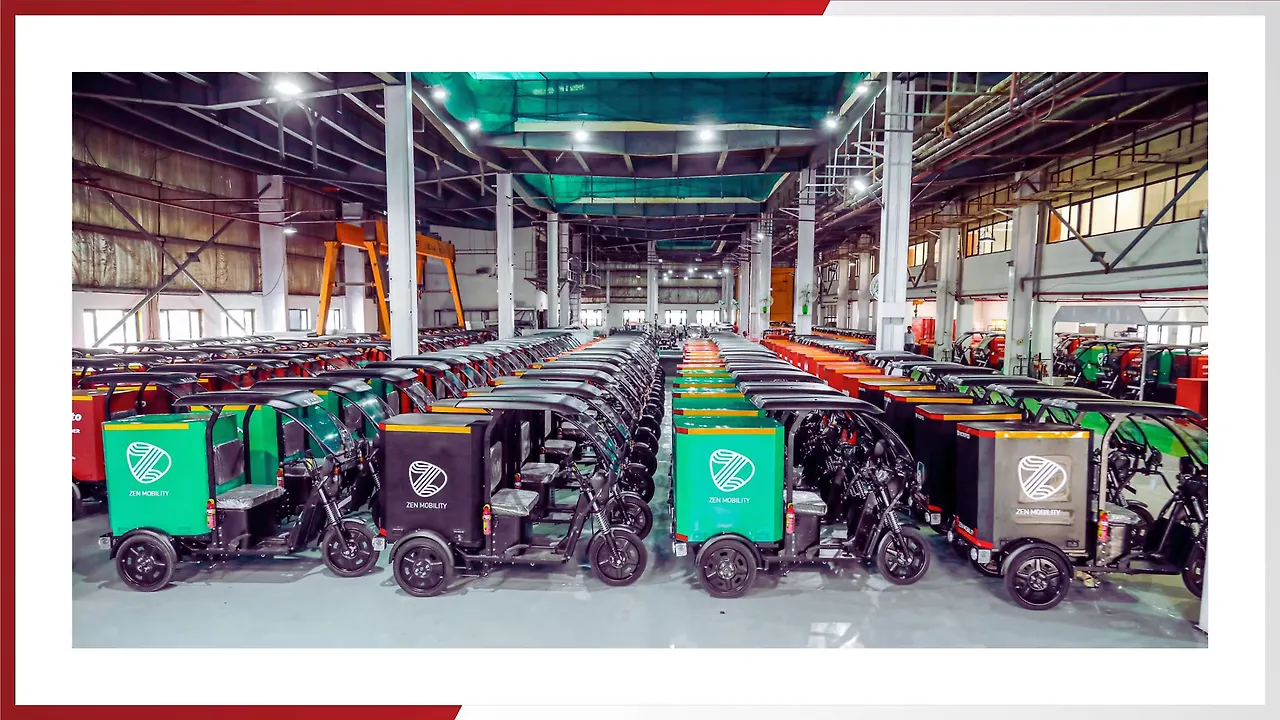
The rise of e-commerce and quick commerce has reshaped logistics highlighting the need for efficient and sustainable last-mile delivery solutions. Zen Mobility has emerged as a key player in this space by addressing critical challenges with innovative products tailored to the Indian market. During a walkthrough of Zen Mobility’s Manesar plant, Namit Jain, its Founder, elaborated on the company’s vision, product development, and operational strategies aimed at transforming last-mile delivery.
Redefining Last-Mile Logistics
The foundation of Zen Mobility is rooted in solving pressing issues in last-mile delivery. The post-COVID boom in e-commerce created an urgent need for vehicles that could handle payloads efficiently while adhering to safety and compliance standards. Riders often carried excessive loads on two-wheelers, leading to inefficiencies, safety risks, and operational challenges. Recognising these gaps, Zen Mobility developed purpose-built solutions like the Zen Micro Pod and its variants.
The Micro Pod ThermoFlex and Micro Pod LoadMax cater to specialised needs such as cold chain logistics and bulky e-commerce deliveries. Priced at INR 2.25 lakh (ex-showroom), these vehicles have been designed to offer efficient, cost-effective, and environmentally friendly alternatives to traditional delivery methods.
Focus On Engineering
Zen Mobility's products undergo rigorous design and testing processes. Over the past four years, the company has conducted extensive research and development, leveraging expertise from its parent company, NTF, which boasts 40 years of experience in the automotive sector.

Zen's vehicles are built on 100% indigenous platforms ensuring durability and reliability. With IP67-rated components for water resistance and strong braking systems, these vehicles have been tested across 150,000 kilometres of diverse terrains and weather conditions. The patented drivetrain and modular design enable customisation for various industries, including grocery delivery, e-commerce, and pharmaceutical logistics.
Product Features
Payload Capacity: Supporting loads of up to 150 kilogrammes, these vehicles outperform conventional two-wheelers and are safer.
Technology Integration: Equipped with telematics, IoT integration, geo-fencing, and remote vehicle locking, the vehicles offer real-time tracking of trip data and battery health.
Efficiency: Operating costs are minimised with the vehicles consuming 4 units of electricity per charge. A full charge takes approximately two hours.
Customisation: Zen offers insulated boxes for temperature-sensitive deliveries, spacious compartments for e-commerce logistics, and open-loader versions for flexible operations. Further customisations can be made according to individual customers.
The emphasis on ergonomic design ensures rider comfort and manoeuvrability in dense urban environments, a critical requirement for fleet operations through congested cities.
Market Presence
The company has deployed over 1,200 vehicles across 12 cities and 10 States, collaborating with clients like Zomato and Blinkit. These partnerships underscore the company’s capability to meet diverse industry needs. Customisation remains a key differentiator, allowing Zen to adapt its vehicles for unique customer requirements, such as refrigerated units for pharmaceuticals or insulated boxes for food delivery.

While the current focus remains on the domestic market, Zen is exploring opportunities for exports to regions like Africa, Europe, and the UK. However, the overwhelming demand in India has led the company to prioritise local expansion before venturing abroad.
By incorporating composite materials such as glass and carbon fibre, the company aims to enhance vehicle efficiency and longevity further. Future plans include exploring advanced battery chemistries like sodium-ion and aluminium-ion, although commercial viability for these technologies remains a few years away.
Challenges & Path Ahead
Despite its successes, Zen Mobility recognises the challenges of market visibility. The company has chosen to prioritise customer-centric design over aggressive branding, focusing instead on reliability and customer satisfaction. Feedback from fleet operators has driven incremental improvements in vehicle design such as enhanced suspension systems and more durable locking mechanisms.
Looking ahead, Zen plans to scale its annual production capacity to 30,000–40,000 units and introduce new vehicle categories, including four-wheelers. By combining durability, cost-efficiency, and sustainability, Zen’s Micro Pod series has set a new standard for last-mile delivery vehicles. As the demand for efficient logistics solutions grows, Zen Mobility will continue to offer robust and compact solutions for the urban environment.
Also Read
Zen Mobility Unveils High-Capacity ThermoFlex & LoadMax Variants